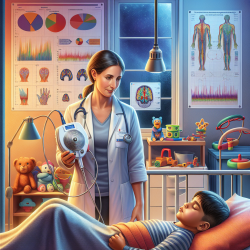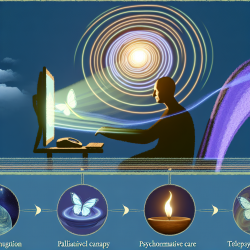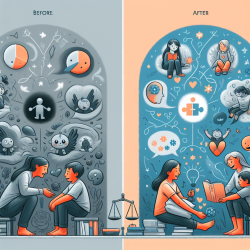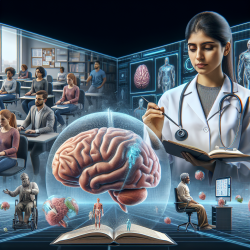Understanding the Study
The study titled "Repetitive transcranial magnetic stimulation for insomnia in patients with autism spectrum disorder: Study protocol for a randomized, double-blind, and sham-controlled clinical trial" investigated the effects of rTMS on insomnia in children with ASD. Conducted as a double-blind, randomized, and sham-controlled trial, the study included 30 participants aged 3-13 years diagnosed with ASD and insomnia. Over four weeks, participants received either rTMS or sham treatment, with assessments at baseline, post-treatment, and one month after intervention.Key Findings
The research highlights several critical outcomes:- rTMS significantly reduced sleep onset latency.
- Improved sleep quality and optimized sleep structure.
- Reduced severity of ASD symptoms, including irritability and repetitive behaviors.
- Long-term effects observed one month post-treatment.
Implementing rTMS in Practice
Practitioners can consider incorporating rTMS into their therapeutic toolkit for treating insomnia in children with ASD. Here are steps to effectively implement this intervention:1. Training and Certification
Ensure that therapists administering rTMS are adequately trained and certified. This includes understanding the equipment, safety protocols, and patient selection criteria.2. Patient Selection
Identify suitable candidates based on the inclusion criteria used in the study:- Children aged 3-13 years with a confirmed diagnosis of ASD.
- Diagnosed with insomnia lasting over three months.
- Not taking any sleep-affecting medications.
3. Treatment Protocol
Follow the study's rTMS protocol for consistency:- Apply rTMS over the right dorsolateral prefrontal cortex (DLPFC) at 1 Hz and 50% resting motor threshold.
- Conduct 20 sessions over four weeks (five days per week).
4. Monitoring and Evaluation
Use objective measures to assess treatment efficacy, including:- Polysomnography (PSG) for sleep parameters.
- Sleep diaries and parent-reported questionnaires like the Children's Sleep Habits Questionnaire (CSHQ).
- Clinical scales such as the Childhood Autism Rating Scale (CARS) and the Aberrant Behavior Checklist (ABC).
Encouraging Further Research
While the study provides promising results, further research is necessary to validate and expand these findings. Practitioners are encouraged to:- Conduct larger-scale studies to confirm the efficacy of rTMS for insomnia in ASD.
- Explore the long-term effects and potential mechanisms underlying rTMS treatment.
- Investigate the impact of rTMS on other comorbid conditions in ASD, such as anxiety and depression.
Conclusion
Repetitive transcranial magnetic stimulation (rTMS) offers a promising non-pharmacological intervention for insomnia in children with ASD. By integrating rTMS into clinical practice and encouraging further research, practitioners can contribute to improved therapeutic outcomes and overall well-being for children with ASD.To read the original research paper, please follow this link: Repetitive transcranial magnetic stimulation for insomnia in patients with autism spectrum disorder: Study protocol for a randomized, double-blind, and sham-controlled clinical trial.










